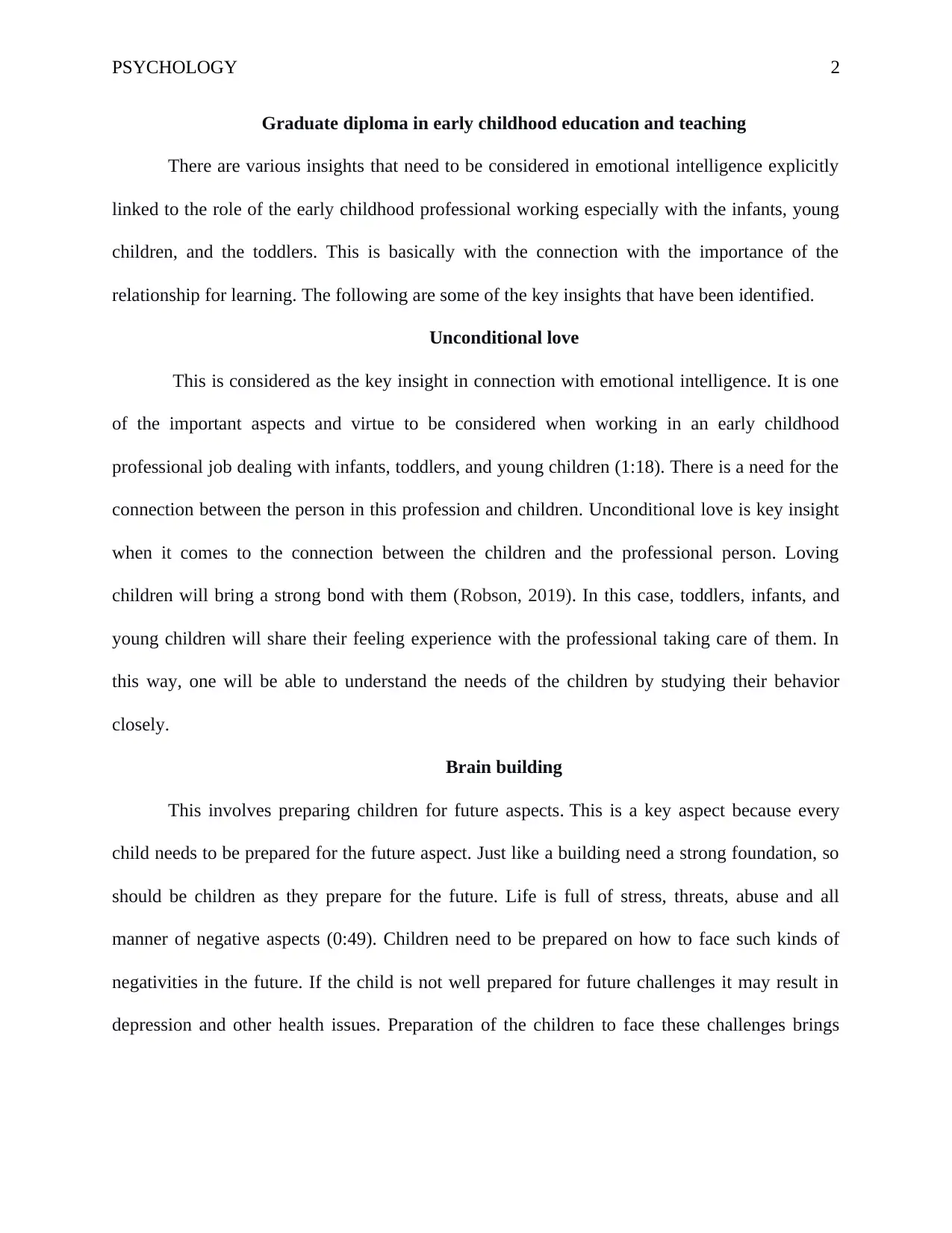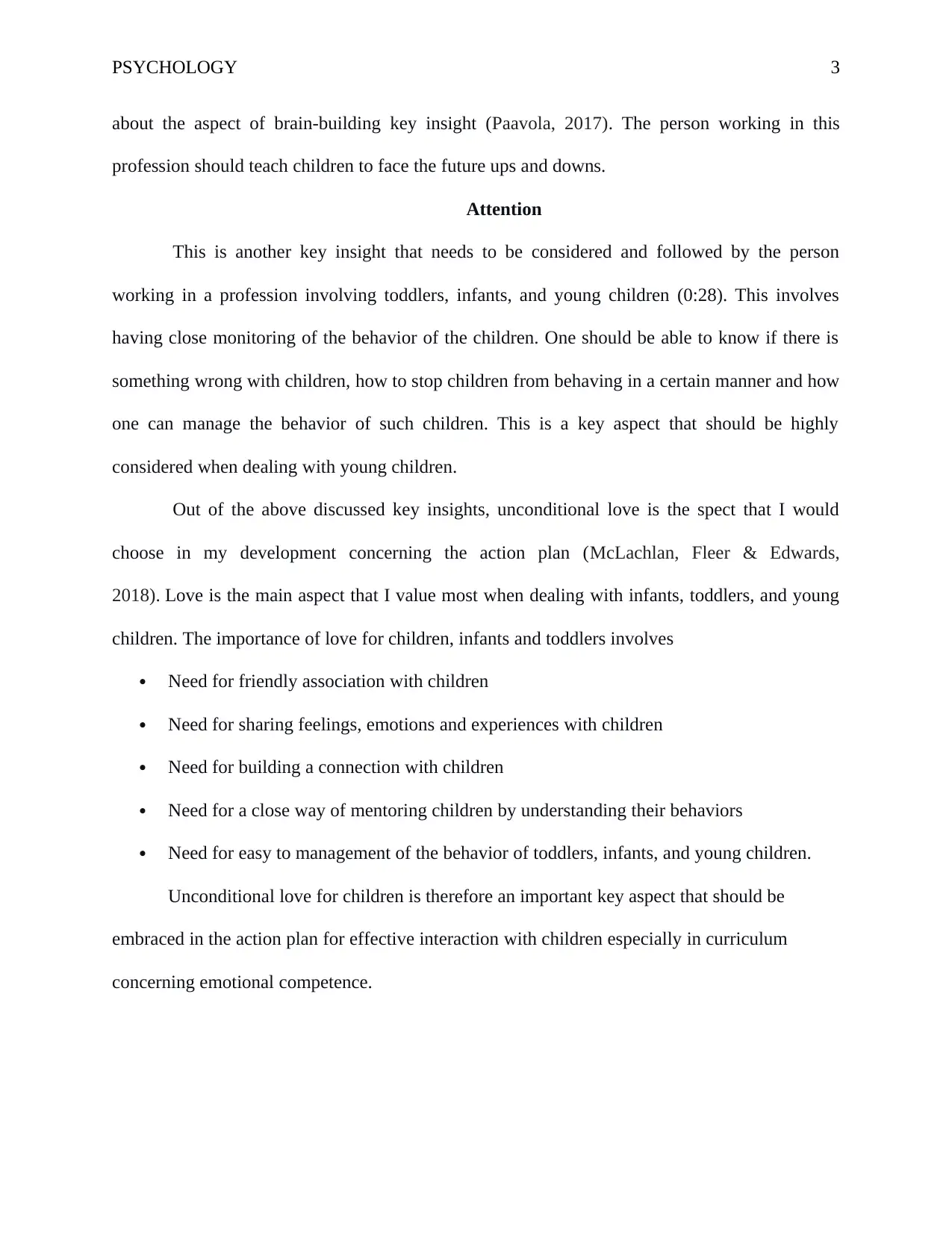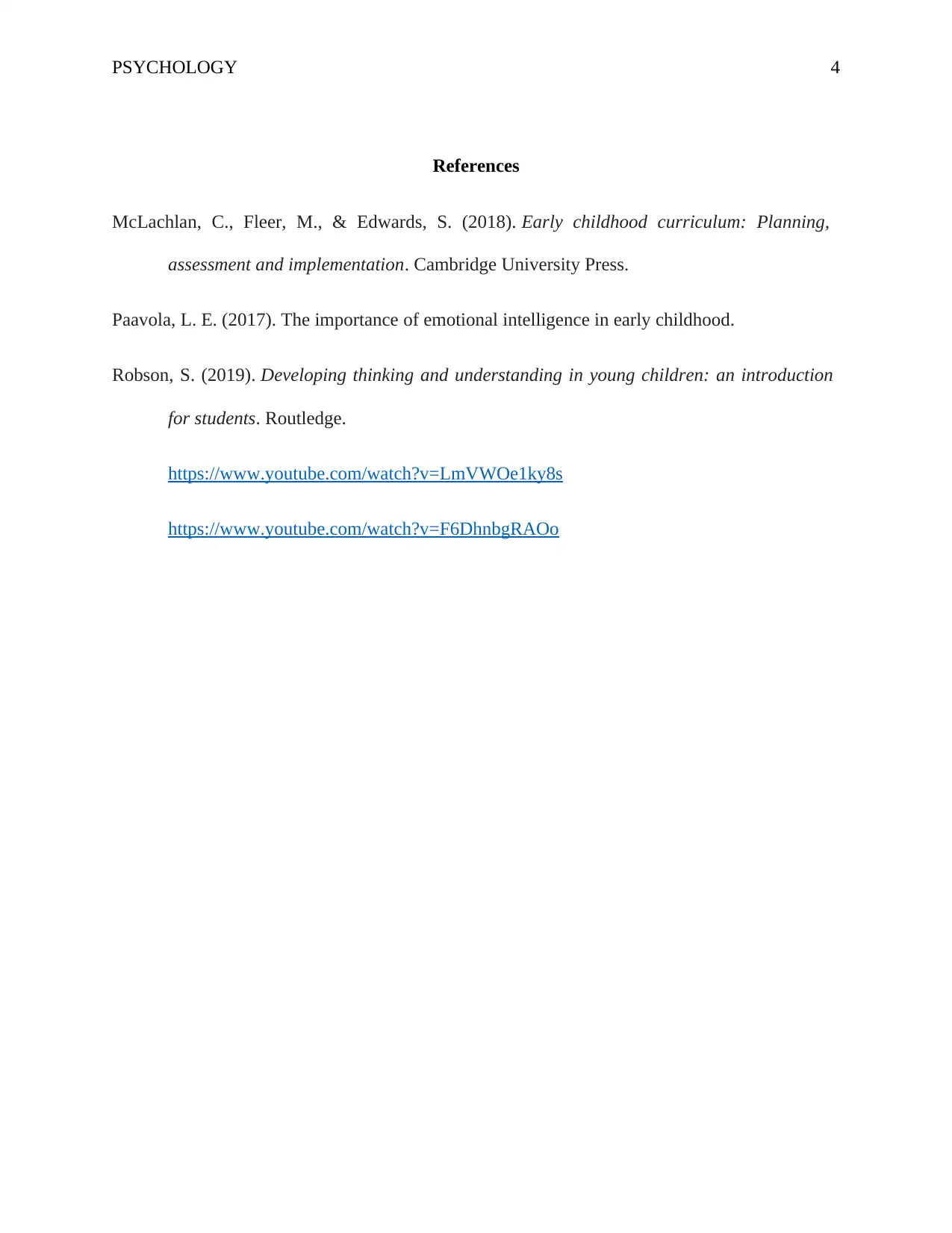Exploring Emotional Intelligence in Early Childhood: Psychology Report
VerifiedAdded on 2022/08/21
|4
|690
|13
Report
AI Summary
This report delves into the critical role of emotional intelligence in early childhood education, specifically focusing on infants, toddlers, and young children. It highlights the importance of key insights such as unconditional love, brain building, and attention in fostering healthy development. The report emphasizes the significance of unconditional love in building strong bonds with children, allowing for effective sharing of feelings and experiences. It also discusses the need to prepare children for future challenges and to closely monitor their behavior. The author identifies unconditional love as the most crucial aspect for their personal development, emphasizing its role in building connections and managing behavior. The report references several scholarly articles and videos to support its claims, providing a comprehensive overview of emotional intelligence within the context of early childhood education and care.
1 out of 4











![[object Object]](/_next/static/media/star-bottom.7253800d.svg)